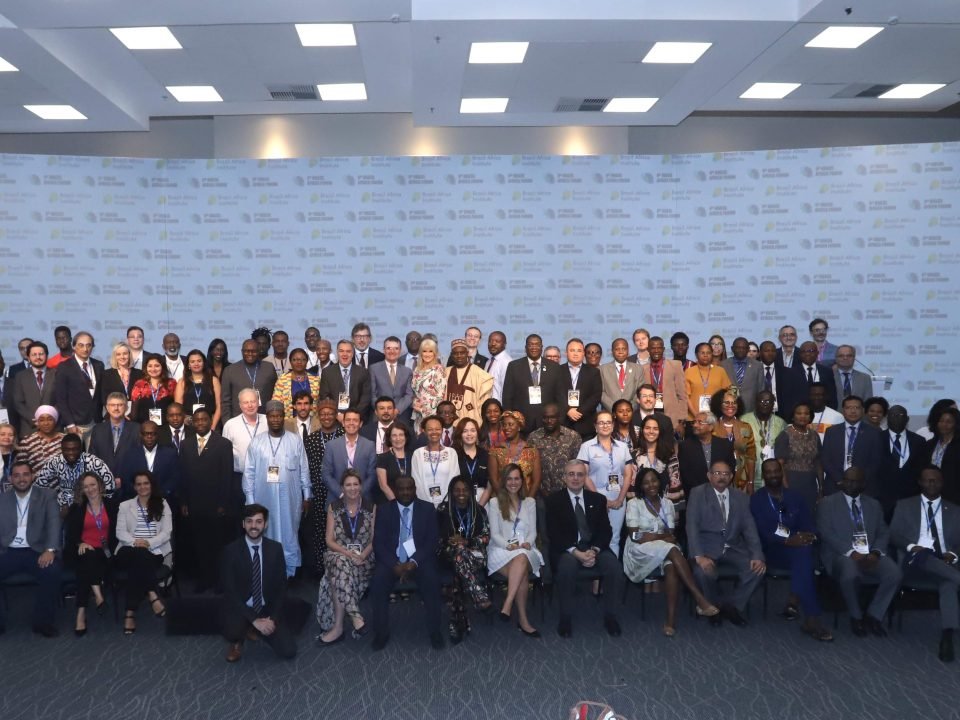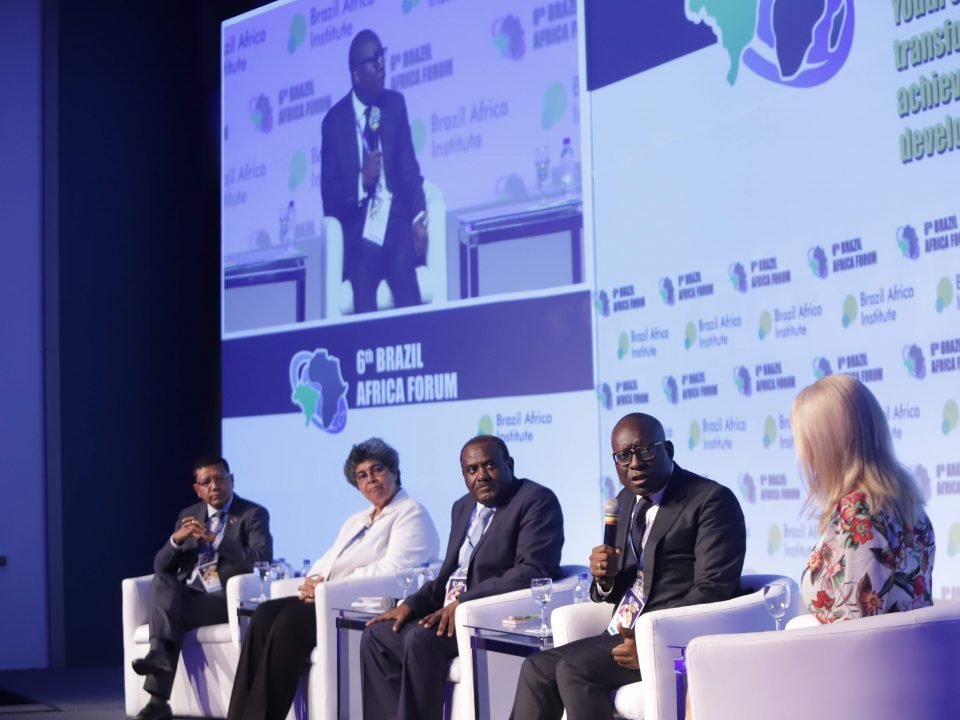6th Forum Brazil Africa discusses youth employment in agriculture, focusing on sustainability and improving food security

Gilbert Houngbo, IFAD President, sends a video message to the second day of the 6th Forum Brazil Africa
23 de novembro de 2018
Empowering the voice of youth through knowledge discussed in the 6th Brazil Africa Forum
23 de novembro de 2018The second day of the 6th Forum Brazil Africa started promoting an important conversation between Higino Marrule, Minister of Agriculture and Food Security of the Republic of Mozambique; Yemi Akinbamijo, Executive Director of the Forum for Agricultural Research in Africa (FARA); Daniel Balaban, Director of the Centre for Excellence against Hunger of the WFP; Livio Vanghetti, Vice President of Global Partnerships of Philip Morris International and Claus Reiner, IFAD’s National Director in Brazil.
Beginning his speech with a piece of advice to the audience, minister Higino Marrule talked about the importance of using a language that the youth can understand when addressing the issue of agriculture. The portfolio representative in Mozambique ensured that educational programs are being adapted to rural areas according to the potential of each area. “It is possible to live in agribusiness when it is well structured. When we interact with the other forces of society, it is important to know the difficulties of the people and to seek together the possible solutions of their problems” said Marrule. The minister also said that agriculture will always be available to meet the needs of this youth
Yemi Akinbamijo stressed the importance of having a more attractive language in agriculture so that young people can understand it, strengthening the power of science and information in the area, and it is essential to focus on new researches. “Brazil has 200 million inhabitants, Nigeria as well. In Brazil, only 6% of the population is involved in agriculture. The African continent has 70% of its people working in the field. The question is this: agriculture is what Africa has. The demonstration of the power of technology is in Brazil, we need to combine these aspects and we will have a good scenario”.
Daniel Balaban, Director of the Centre for Excellence against Hunger, drew attention to the importance of keeping people in the field. According to Balaban, when Brazil created the Zero Hunger program one of the pillars was investing in small farmers, fostering a demand structure. “My role is to support African countries so that they can create social policies based on school feeding. Food that goes to schools needs to come from family farmers”. The Director said that people in Africa have no interest in remaining in rural areas because of the lack of demand for the products produced. Through school feeding, we could balance the supply and demand equation. This will bring benefits to education, food security, health, and agriculture, as more food will be produced.
Another point raised by Daniel Balaban was the UN Food Security Report, showing that 821 million human beings are hungry in the world. “Do not we have the technology to fight hunger in the world? What we need is the political commitment to do this. The world spends a trillion and a half on military issues and, to end hunger, we use only 1% of that expenditure. This is a shame. We should invest money in technology to support smallholder farmers and small producers, “he concluded.
Philip Morris International Vice President of Global Partners Livio Vanghetti highlighted the importance of the digital world for the countryside. According to Vanghetti, the young generation of African countries wants a business that is self-sustaining. “Not everything they learn, they can implant. If I were from the public sector, I would call the private sector and say: what can your business do for my country?”
Claus Reiner, IFAD’s Country Director, pointed out that the empowerment of young people in agriculture is the future. The challenge is to make the lives of agriculture attractive to this youth, who long for new functions in the field, linked to technology.
According to the National Director, the private sector must be committed, generating diverse activities and internationalizing the products. Small businesses, on the other hand, should form a general economic picture that needs to be more dynamic. “Every country has a complex business that involves many decisions. Young people want to find new answers, they want to have an ecological and sustainable way of production, sell things, have an income. “
Claus Reiner said that young people want to create different forms of business and need some support through market access and business. “At this point, the role of the older generations, who can promote these opportunities, is crucial. We need to make room for the young people who are creating new ideas” he added.
More photos:








